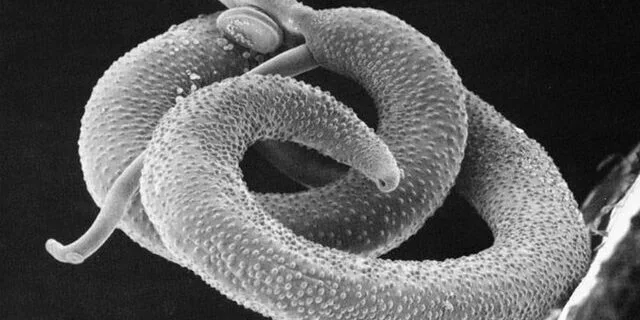
A recent study published in The Journal of Immunology found that maternal infection with parasitic worms, or helminths, affects the immune system of male offspring. Specifically impacted is the ability to gain protection from vaccines, known as vaccine efficacy. The observed impact on vaccine efficacy has significant implications on global health as it can impair the efforts of vaccination campaigns, especially in areas where helminth infections are high.
Helminth Infection
Schistosomiasis, a disease caused by helminth infection, is common in areas without safe drinking water or adequate sanitation. Dr. Keke Fairfax and their team at the University of Utah previously found that maternal schistosomiasis weakened the immune response of offspring. Building on their prior research the team investigated the role of biological sex in the weakened immune response.
Using mice, they found that maternal schistosomiasis impacted B cell development in male offspring. B cells are a type of immune cell responsible for producing antibodies that help the body fight germs. Antibodies can be produced in response to an infection or a vaccine. Male offspring from infected mothers had a reduction in the number of these B cells.
Decreased Vaccine Response
The researchers traced the reduction in B cells back to a specialized area within the lymph nodes and spleen called the germinal center (GC). In the GC, B cells rapidly grow and improve their ability to fight infections. In male offspring of infected mothers, there were defects in the GC that affected B cell growth. Because of these defects, when the male offspring were given a tetanus vaccine, they produced fewer antibodies. These changes in the GC were not observed in female offspring.
To better understand the reduction in B cells, the researchers investigated the signals that direct B cell development. They examined the role of IL-7, a cytokine or signal that plays an important function in the growth and maturity of B cells. Both male and female offspring of infected mothers had lower IL-7 levels. However, only males had IL-7 reductions that impacted B-cell proliferation or the rapid increase in B cells specific to one germ or antigen.
Real World Impact
While this study was in mice, the team compared their findings to trends observed in children in Kenya. Children born to mothers with schistosomiasis tended to have weaker immune responses to the tetanus vaccine, mirroring what was observed in mice. This highlights how ensuring maternal health may be a powerful tool not only for protecting mothers but for safeguarding the immune health of the next generation.
This work encourages future studies on how maternal health and infectious diseases impact childhood immunity, especially sex-specific immune development.
To read the full article, visit The Journal of Immunology.




